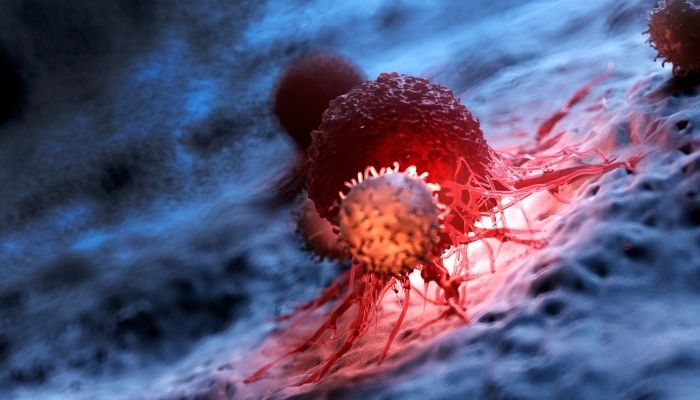Malignant neoplasm means a cancerous tumor. These tumors keep developing with excessive division and growth of cells. They may also spread to several tissues nearby and other body parts. Options for treatment may encompass chemotherapy, radiation therapy or surgery. Swift detection is crucial in this case as well. Neoplasm itself means abnormal tissue growth. Malignant also means that the tumor in question is cancerous and is more likely to spread beyond its origination point. This is the commonly accepted malignant tumor definition.

You will often hear of malignant lymph node neoplasm or malignant neoplasm of breast which means that these areas have seen the development of such tumors. Neoplasm could indicate non-cancerous or benign tissue growth or cancerous/malignant growth. The former usually develop slowly without spreading to other body parts while the latter grow swiftly and keep spreading to other areas. Malignant neoplasm usually means cancer although there are chances of benign neoplasms too. This condition impacts those who are over 65 years of age although younger individuals are also likely to be impacted.
Types of malignant neoplasm
- Carcinomas- They represent almost 90% of all cases linked to cancer, originating in the epithelial tissue including the organ linings or skin. Common varieties include malignant neoplasms of the breast, skin, cervix, prostate, endometrium, cervix, colon, lung or rectum.
- Sarcomas- This type starts in the connective body tissues including the muscles, bones, tendons, cartilage and fat. Sarcomas commonly happen for younger adults and soft tissue sarcoma is one of the major conditions worth mentioning here.
- Myelomas- Multiple myeloma indicates a specific cancer type forming in the immune/plasma cells within the bone marrow. The chief types are active (cancerous) and smoldering (precancerous stage).
- Leukemia- They are also known as blood cancers and impact the bone marrow as well. The ailment is often linked to immature blood cells being produced in higher numbers, leading to fatigue, anemia and clotting of the blood.
- Lymphomas- This cancer type originates in the lymph nodes or glands. They may take place anywhere in your body although the common points are the groin, neck or underarm.
Causes and Symptoms
Symptoms may vary, based on the location of the tumor. For instance, people with the condition in the breast may witness abnormal discharge from the nipples or pain in the breast. Those with neoplasm in the colon may have abdominal pain/irritation along with stool changes. Those with the condition in the skin may witness lesions/sores. Some common symptoms include fatigue, anemia, shortness of breath, loss of weight, diarrhea, abnormal bumps/lumps and night sweats.The causes may be linked to risks like genetic disorders, smoking, excessive alcohol consumption, obesity, excessive radiation exposure, chemical toxins, excessive UV (ultra violet) ray exposure and so on. Cancer cells may also divide from their origination point, going through the body to create newer tumors in a process known as metastasis.
Testing, Treatment and Diagnosis
Here are some pointers worth noting in this regard:- Colonoscopy or a mammogram may help in cancer detection along with a biopsy for determining whether the tumor is malignant/benign.
- CT scans/MRIs/PET scans may also be needed.
- Treatment is dependent upon the tumor size and type and the spread to other body parts.
- If localized in a single zone, then surgery could be advised.
- In case of spread, radiation therapy, chemotherapy or targeted drug therapy may be recommended.
- Surgical removal may be possible if the tumor is still localized and small. The whole mass of the tumor and some other surrounding tissues will be removed in this case.
- Chemotherapy may be done for eliminating cancer cells and stopping their spread and is used for treating both metastatic and primary cancer types.
- Targeted drug therapy- This combats those proteins which control the growth of cancer cells, along with their spread and division. There are therapies available for various cancer types.
- Radiation therapy makes use of stronger energy beams for the destruction of these cancer cells in the body.


